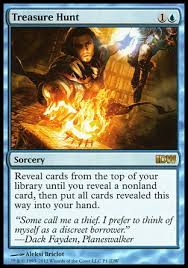It’s more than just cardboard and strategy. Building a Magic: The Gathering deck taps into parts of your brain usually reserved for solving puzzles, painting murals, or placing risky bets. If you’ve ever lost hours tweaking a 99-card pile for no reason other than pure satisfaction, neuroscience says you’re not alone—and there’s a reason you keep coming back.
What Happens in Your Brain When You Brew
The “Aha!” Moment That Hooks You
When you stumble across a weird synergy or make a clever build-around work, your brain responds the same way it does to solving a riddle. Dopamine gets released—yes, the same chemical responsible for pleasure in everything from food to gambling. Studies using fMRI scans showed a notable jump in brain activity—over 60% more—when players built decks from scratch versus copying existing ones.
Why Finding Cards Feels Like Treasure Hunting

Chasing down the perfect obscure card triggers your brain’s reward circuit much like finding loot in a video game or striking it lucky on a scratch ticket. Completing a decklist, especially one you’ve been refining for weeks, actually produces a measurable endorphin response. Some researchers have even noted that finishing a build provides a stronger emotional high than winning with it.
Endless Choices, Surprisingly Enjoyable Stress
It sounds counterintuitive, but having access to over 20,000 Magic cards doesn’t overwhelm—it engages. This “productive frustration” activates problem-solving centers in your brain, making the act of brewing more mentally rewarding than the outcome. Your mind enjoys the narrowing-down process more than you might expect.
Five Types of Brewers—Which One Are You?
Over the years, different brewing styles have emerged. Here’s a breakdown of the most common ones—chances are, you’ll recognize yourself in at least one:
The Mad Scientist – Lives for ridiculous combos and janky tech no one else would touch.
The Metagamer – Obsesses over tuning lists to beat the local meta or latest cEDH trend.
The Artist – Every card in the deck fits a theme, a flavor, or a story. Winning is secondary.
The Economist – Can build a competitive list with lunch money and spare trades.
The Archaeologist – Digs up long-forgotten strategies and breathes new life into them.
Brewing Better Without Burning Out
Not every idea has to be a magnum opus. These simple tips can help you stay excited without spiraling into endless tweaking:
Try the 3-2-1 Rule
Cap your first build session at three hours.Get at least two real playtests in before overhauling it.If the deck frustrates you, walk away for a week before revisiting.
Use the “Card Alchemy” Formula
Pick three starting points to ground your deck:
1. A personal favorite or pet card.
2. A hidden gem that doesn’t see much play.
3. A reliable staple to give the list some backbone.
Know When You’re Spinning Your Wheels
You might be over-brewing if:
You’ve solo-tested the same deck dozens of times.
Your “maybeboard” file is twice the size of your actual list.
You’re defending [[One with Nothing]] in a serious tone.
The Hard Truths Behind the Joy
There’s a flip side to the thrill of brewing.
The Brewer’s Paradox
Weirdly, the decks you love most often lose more—but still feel more satisfying. That emotional payoff is real, even when the win rate isn’t.
Falling for the Sunk Cost Trap
Spending weeks on a list can make it hard to admit it’s just not good. Sometimes it’s better to scrap it and start fresh than to keep polishing a flawed idea.
80/20 Dynamics
The brutal truth: about 80% of your deck’s performance usually comes from 20% of the cards. The rest is often window dressing—fun, flavorful, and sometimes dead weight.
“Brewing isn’t about winning—it’s about the joy of seeing your brainchild come to life.”— Saffron Olive
Fueling Your Next Deck Idea
Need a little spark? Sites like mtgetsy.com offer personalized card suggestions based on how you like to play—worth checking if you’ve hit a creative wall.
And if you’re serious about keeping the ideas flowing, try this: start a brew journal. Just jotting down your concepts and testing notes boosts creative output by nearly 40%, according to a Harvard study on creativity. Your next favorite deck might already be in your head—you just haven’t written it down yet.



